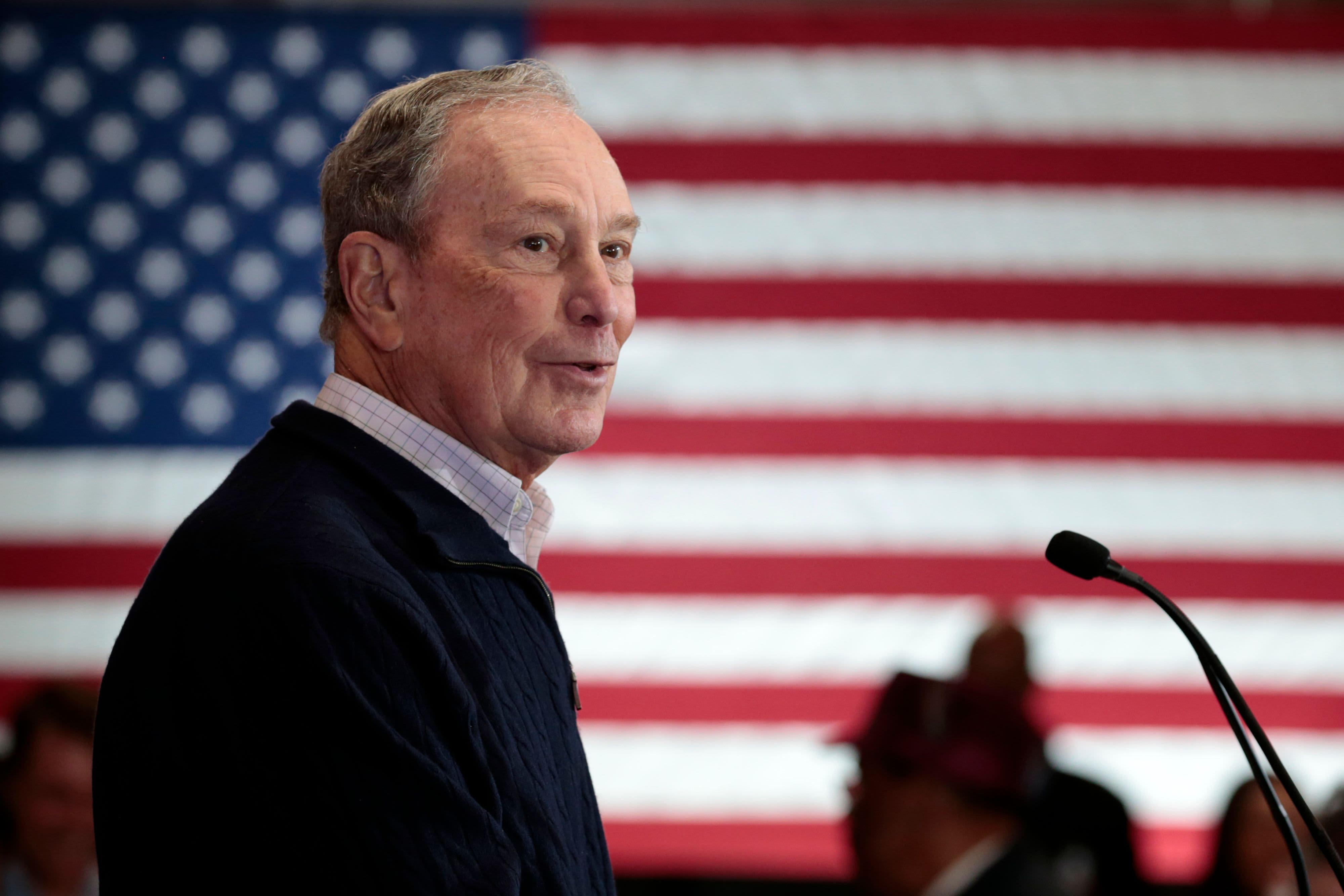Billionaire candidate Mike Bloomberg’s presidential campaign may not be taking money from some of the most influential Democratic donors on Wall Street, but he is working hard to convince them he has a path to win the nomination.
Bloomberg and his team made their pitch Dec. 19 to at least 90 attendees, including many New York business executives, at a breakfast at his campaign headquarters in New York, according to people who attended. These people spoke on the condition of anonymity due the conversations being deemed private.
According to the people, Bloomberg himself prodded the financiers to open up their donor networks to the Democratic National Committee and state Democratic parties. Bloomberg donated over $106,000 to the DNC in November, according to the group’s most recent filing.
Bloomberg aides, however, focused on which states his campaign aimed to win in his quest for the Democratic nomination and the chance to take on President Donald Trump in 2020, according to the people.
The aides showed a map highlighting Michigan, Ohio, Pennsylvania and Wisconsin as states Bloomberg could pick up during the primary. Those states’ primary contests are scheduled for March and April of next year.
Trump flipped those states to red from blue during his 2016 victory over Democrat Hillary Clinton.
The Bloomberg aides also emphasized that they were focusing on a range of states that will hold their votes on March 3, also known as Super Tuesday.
Those who attended the event include investor Blair Effron, Blackstone operating chief Jonathan Gray, real estate titan William Rudin, Signum Global Advisors chairman and founder Charles Myers, investment banking executive John Rhea and Jerry Speyer, real estate investor and co-founder of Tishman Speyer.
A Bloomberg campaign aide said others in attendance included Valerie Wilpon, the wife of New York Mets co-owner Jeff Wilpon; Paul, Weiss, Rifkind, Wharton & Garrison Chairman Brad Karp; Kathy Chenault, the wife of former American Express CEO Ken Chenault; as well as several local activists and community and religious leaders.
Bloomberg’s outreach to key Democratic financiers shows that he is eager for their support and influence, even if he doesn’t want their money.
Some of the people who attended the breakfast last week are backing other presidential candidates, including Effron, who recently decided he’s going to open his donor network to former Vice President Joe Biden.
Yet many of the financiers left feeling impressed with the Bloomberg presentation. They departed believing that Bloomberg wanted them to privately spread the word to their allies in the business community about his campaign’s operation and how he plans to move up in the primary field. Bloomberg is dedicated to self-funding his entire campaign.
“The path is to do 24/7 ads, both pro-Bloomberg and anti-Trump, and to be on the ground in all of the Super Tuesday states well before the other candidates,” said one of the donors who attended. “The premise is basically that there are so many more delegates in those states than the first four. They want the NYC business leaders to be supporters. Not monetary but just getting the word out.”
Marc LaVorgna, a spokesman for Bloomberg’s campaign, confirmed that the meeting focused on the need for those in attendance to support the Democratic Party and how the former New York mayor could win the nomination.
“Mike made the case to a large, diverse group of politically active New Yorkers for, one, why he can win the nomination and is the candidate best positioned to defeat Donald Trump and two, why we want them to contribute to the Democratic Party across the country to help eliminate the financial advantage Trump and the Republicans have nationally,” he said.
Bloomberg, who founded financial services and media company Bloomberg LP, has known several of these business leaders for years.
Bloomberg, after launching his campaign late in the game, is not participating in the February nominating contests in Iowa, New Hampshire, South Carolina and Nevada.
Biden currently leads the Democratic field in national polling averages, according to Real Clear Politics. Bloomberg, former three-term mayor of New York, is fifth, behind Biden, Sens. Bernie Sanders and Elizabeth Warren, and South Bend Mayor Pete Buttigieg.
Bloomberg, who has a net worth of just over $54 billion, has already spent tens of millions of dollars on TV ads while hiring campaign staff in the states he is looking to win. Bloomberg has spent at least $11 million on TV ads in Pennsylvania, Wisconsin, Ohio and Michigan, according to data provided by Advertising Analytics. In California, one of the most delegate-rich Super Tuesday states, Bloomberg has invested over $10 million on ads.
Bloomberg’s do-it-his-way approach goes beyond how he’s handling his TV ads. The data-focused candidate is utilizing a technology company called Hawkfish, which he founded in spring of this year, to take on Trump and the Republican Party’s digital operation, CNBC first reported.
The Bloomberg campaign explained that Hawkfish will be its “primary digital agency and technology services provider.” Bloomberg has said he will spend over $100 million on anti-Trump digital ads. So far, he has spent $4.7 million on Facebook ads, along with another, $13 million on Google.

